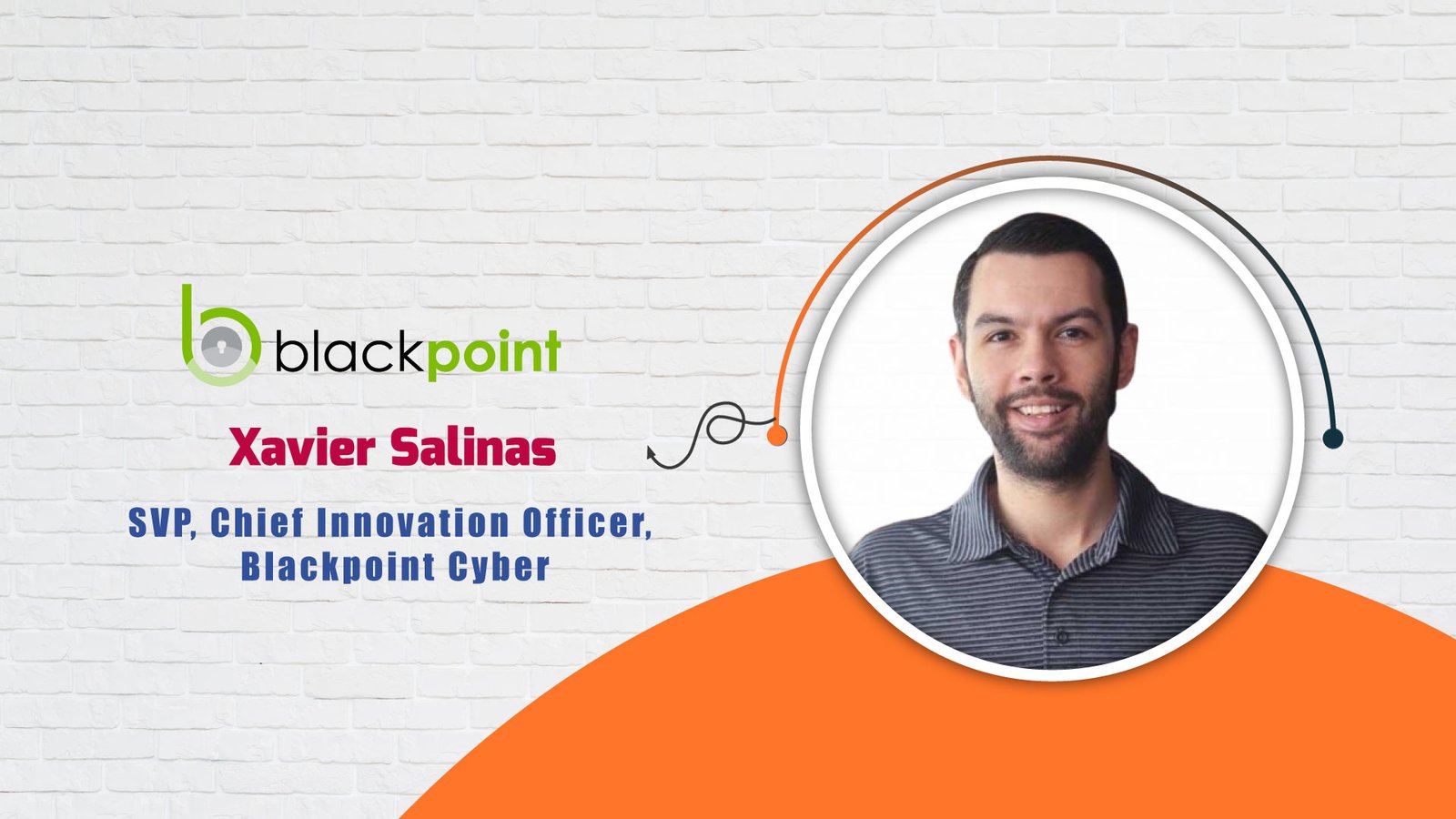AITech Interview with Xavier Salinas, SVP, Chief Innovation Officer, Blackpoint Cyber
Xavier Salinas delves into AI-driven cyber threats and defenses, tackling GenAI, deepfakes, and future-proofing cybersecurity. To kick things off, Xavier, could you share a bit about your journey in cybersecurity and what led you to your current role as Chief Innovation Officer. I’ve always had a passion for reverse engineering... The post AITech Interview with Xavier Salinas, SVP, Chief Innovation Officer, Blackpoint Cyber first appeared on AI-Tech Park.

Xavier Salinas delves into AI-driven cyber threats and defenses, tackling GenAI, deepfakes, and future-proofing cybersecurity.
To kick things off, Xavier, could you share a bit about your journey in cybersecurity and what led you to your current role as Chief Innovation Officer.
I’ve always had a passion for reverse engineering and tinkering with systems. My journey into cybersecurity started with a focus on IT and networking, but I soon shifted to security as I managed firewalls and caught hackers. After joining Blackpoint Cyber, I spent years building software that accelerates hacker detection. Now, as Chief Innovation Officer, I’m focused on staying ahead with innovations like AI to maintain our tech advantage and defend against emerging threats.
With the rapid rise of generative AI (GenAI), what are some of the most concerning emerging threats you’re observing in the cybersecurity landscape?
The most alarming threat is how GenAI lowers the barrier of entry for attackers. It enables non-experts to create highly realistic deepfakes, including cloned voices of CEOs, and conduct sophisticated phishing attacks. GenAI also helps write better scripts and enhances the overall quality of malicious content
Phishing has long been a major concern, but how do you foresee GenAI being used in more complex and dangerous attacks, such as audio deepfakes or other new methods?
AI is now being used to create convincing audio and video deepfakes. It allows attackers to make non-native speakers sound like fluent English speakers, or even mimic specific individuals. This level of deception makes traditional phishing tactics more dangerous and difficult to detect
Bot networks are growing more advanced with the help of AI. Can you explain how GenAI is being leveraged to build more robust bot networks and facilitate more sophisticated cyberattacks?
While I can’t speak from direct experience, GenAI could improve botnet efficiency by analyzing large datasets and identifying the most valuable targets. Instead of the traditional “spray and pray” approach, attackers could focus on high-value machines within a botnet, shortening the attack timeline and maximizing impact.
In terms of defense, how is AI currently assisting cybersecurity teams in distinguishing between genuine threats and false positives in an increasingly complex threat environment?
One of AI’s most significant contributions to defense is automating report generation, saving analysts time on mundane tasks. AI also improves threat detection through machine learning and data analytics, helping teams contextualize threats more quickly. While AI helps provide insights, human expertise is still required to make final decisions.
As cyberattacks evolve, what role do you see AI playing in helping organizations anticipate and proactively respond to threats before they materialize?
In my view, AI’s role is limited regarding proactive threat response. The key still lies in maintaining good cybersecurity hygiene and prioritizing based on risk exposure. AI can help with prioritization, but strong security protocols and asset management remain crucial.
How can AI be used to enhance not only threat detection but also response strategies in high-pressure environments like security operations centers?
AI excels at prioritizing threats and generating after-action reports. In security operations centers, it helps streamline the entire process—from identifying threats to compiling data for a faster response. AI simplifies and accelerates decision-making, especially in high-pressure situations.
Given the potential for GenAI to be weaponized by attackers, how can cybersecurity professionals ensure that their defenses keep pace with the rapid advancements in AI?
The most critical defense is knowing what assets are exposed and maintaining a strong security posture. Cybersecurity teams need to ensure that all systems are patched and fortified while leveraging AI tools to help contextualize potential vulnerabilities.
What challenges do you believe organizations will face as cyber threats become more AI-driven, and how can they stay ahead of these evolving risks?
While AI-driven threats are evolving, the good news is that human oversight is still essential. Organizations will face the challenge of keeping humans in the loop while enhancing their defensive tools with AI capabilities to stay ahead of attackers.
Looking ahead, what are your predictions for the future of AI in both offensive and defensive cybersecurity strategies, and how can businesses best prepare for what’s to come?
On the offensive side, I predict more AI-driven phishing and prompt hijacking—essentially tricking AI systems into doing things they shouldn’t. Defensively, AI will elevate entry-level analysts, helping them fill knowledge gaps and respond more effectively to threats. Businesses should invest in both AI tools and human expertise to prepare for this future.

Xavier Salinas,
SVP, Chief Innovation Officer, Blackpoint Cyber
Xavier Salinas is an experienced cybersecurity professional who has held various technical positions in companies such as Blackpoint Cyber, Tenable Network Security, Schneider Electric Buildings Critical Systems, Inc., and SoBran-Inc.
Blackpoint Cyber’s unmatched identity-driven MDR platform, powered by a 24/7 Security Operations Center, neutralizes cyber threats before they strike.
Explore AITechPark for the latest advancements in AI, IOT, Cybersecurity, AITech News, and insightful updates from industry experts!
The post AITech Interview with Xavier Salinas, SVP, Chief Innovation Officer, Blackpoint Cyber first appeared on AI-Tech Park.













